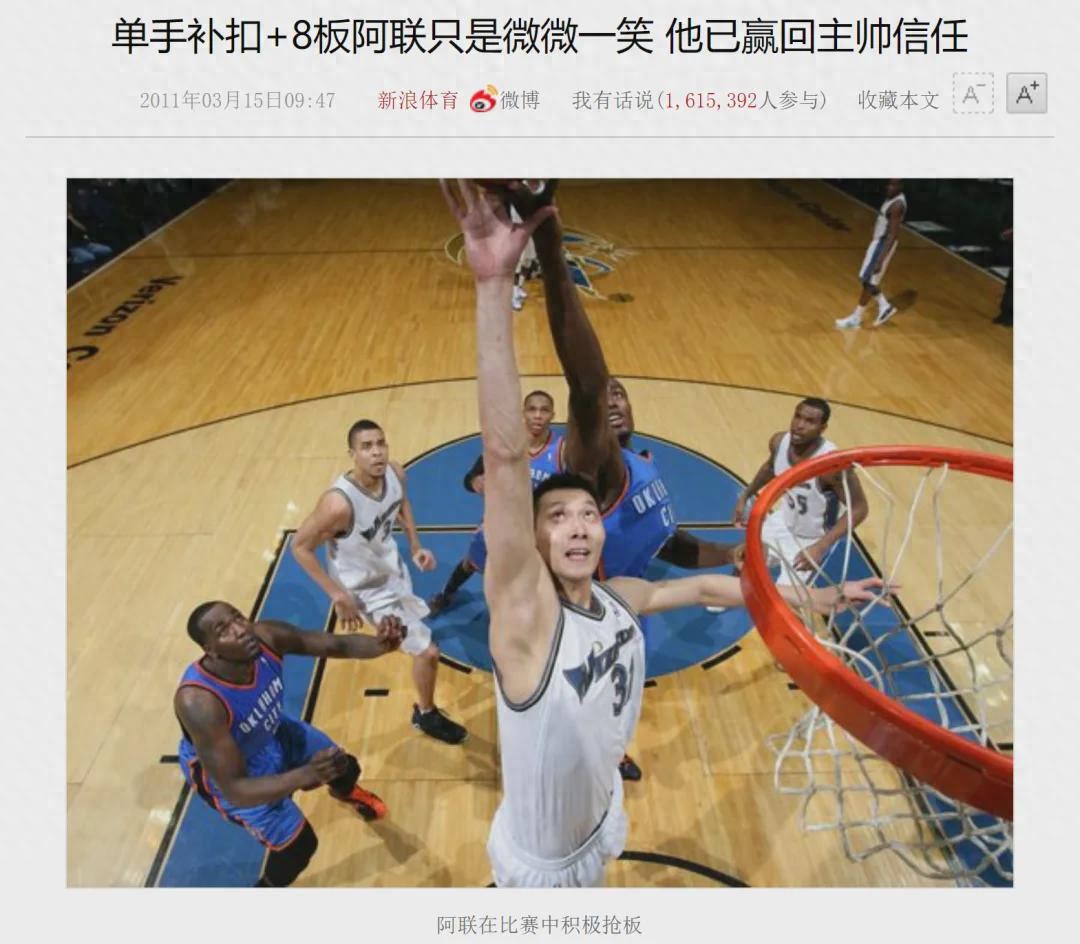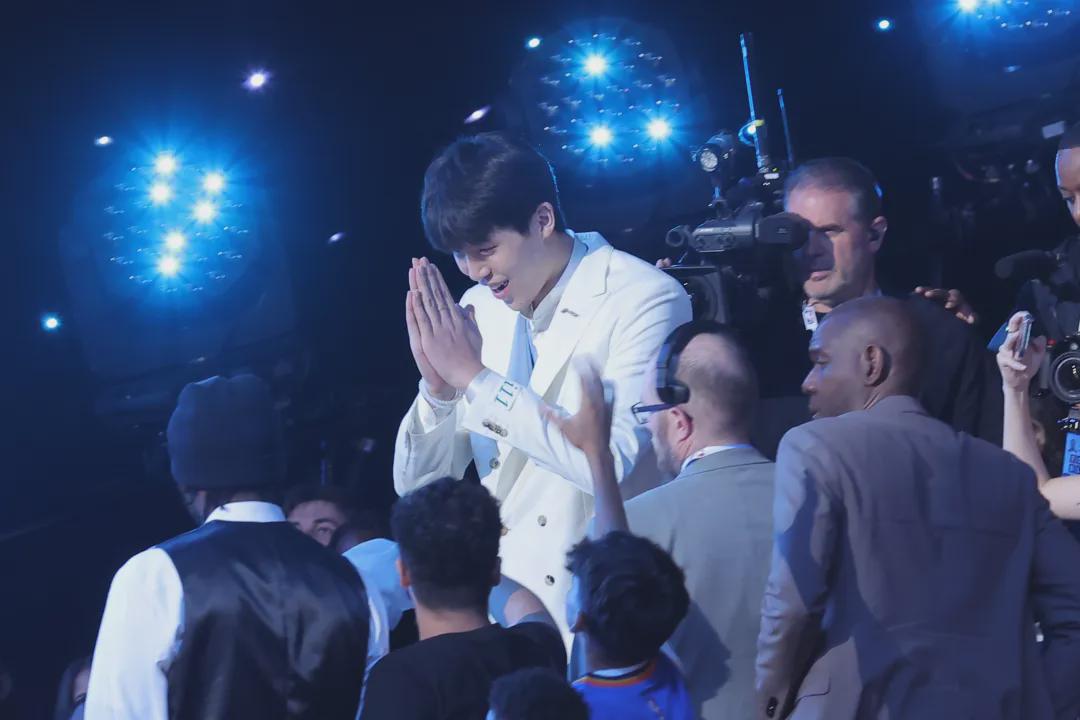We have placed too much pressure on Yang Hansen!
Yang Hansen’s arrival in the NBA as a first-round pick has brought great enthusiasm and spotlight to Chinese basketball.
For someone like me, an obscure self-media blogger who regularly writes on public accounts, his NBA presence has increased my traffic significantly. Although I’m not an expert, quite a few people enjoy my casual talk and exaggerations.
From that angle, I am definitely a beneficiary and could even launch a special news section dedicated to Yang Hansen.
However, I must openly admit that over the past few years, I have been disappointed with the media environment surrounding Chinese sports.
Or rather, there are very few genuine sports media outlets left in China.
Our generation had a limited way of learning about the NBA when we were young — through CCTV5 broadcasts, magazines, and text live updates...
Back then, the games, players, and fans were relatively simpler.
It’s undeniable that criticizing and teasing players has always existed, for example the jokes about Yi Jianlian, which are still remembered:
“ABCDE, ED (Yi Di) CBA!”
“Chewing Wrigley’s, stay relaxed, starting only plays ten minutes”“Drinking Yili, full of energy, ten shots one goal, Space Yi”
“One-handed dunk + 8 rebounds, Yi Jianlian just smiles slightly, regaining coach’s trust!”
...

But now, in 2025, the media landscape is very different.
We live in an era where everyone is a self-media creator.
Driven by marketing accounts, many games have turned into chaotic spectacles filled with verbal battles for clicks.
The atmosphere is full of impatience and hostility; quick success has become the label of the times.
When a team performs poorly, fans from different regions insult each other; when a team struggles, online experts point out problems and assign blame; if a player has a bad game, they are easily attacked to the point of emotional breakdown...
What did the Trail Blazers reporter say?
“His home country has an enormous fan base, and the intensity of following his news is suffocating.”
When a village finally produces a college graduate, villagers hope he will lead them out of poverty — this mindset is widespread.
For Yang Hansen, public opinion deeply ties his performance to national honor.
Those burdened with hope often feel suffocated due to excessive expectations and emotional attachment, resulting in heavy psychological pressure.
That feeling of carrying a thousand-pound burden because of expectations is something we all experience to some extent in our studies and lives — it’s truly exhausting.
These are the challenges Yang Hansen must face, and the burden is heavier because of his high level of attention.

If Hansen underperforms, the online abuse will be even harsher.
Many people expect All-Star level performance from Yang Hansen, although they say casually that 6 points and 4 rebounds in the new season would be good enough.
But what if Yang fouls out with six fouls again like in the preseason?
Self-media might start analyzing his potential demotion to the G League, even wishing for him to prepare for the new CBA season...
This is the sports environment ecosystem in China.
In the restless online world, people always look for what they want to see.
It’s hard to expect fans to think critically, so the current atmosphere of watching basketball is very poor...
Before the game is even over, if you perform poorly, you might already be trending at number one on social media.
We are not Yang Hansen, but if we put ourselves in his shoes, the pressure he carries is indeed enormous.
Especially given that the Chinese men’s basketball team has missed the Olympics for two consecutive editions.
To establish himself in the NBA, his skill gap might be bridged through training and games, but the excessive national expectations and media scrutiny require the Chinese basketball community to “loosen the reins” for him.
Why did he cry before? Pressure played a big part in it.
As the only representative, all eyes are on him, and everything must be examined under a microscope.
Learning to handle public opinion is definitely a challenge that 20-year-old Yang Hansen must face.
After all, he cannot be like Wang Zhizhi, who didn’t use Weibo, Douyin, or even WeChat, and still communicated with everyone via SMS.
We can’t expect players born after 2000 to do the same.
The post-2000 generation is called the “plugged-in generation,” growing up during the rapid development of the internet, relying more on digital devices like phones, computers, and cameras.
But you’ll notice that during his NBA pursuit, the Qingdao team protected him well, rarely letting him attend press conferences.
......
After writing so much, what is the main point?
1. Fans and media should be more tolerant and patient.
You’ll find that the Trail Blazers are patient with Yang Hansen, but we ourselves are too impatient.
2. Yang Hansen, whether chewing Wrigley’s gum or not, we hope he stays relaxed.
If he plays well, consider it a pleasant surprise.
If he plays poorly, that’s normal too.
When you see negative comments, think like this:
Even Yao Ming was heavily criticized here...



Wonderfulshortvideo
Wemby is a beast on the court 💪


Wemby with the tomahawk jam 💪 💥


Replying to @NBA This angle of Wemby’s dunk though 😲🔥


Seriously… how is this possible 🫨😲😤🚨


Replying to @NBA Wemby full sent that ↗️


34 points for the number 3 pick 😱


Showtime has begun 🍿








 Links
Links
 Contact
Contact
 App
App


